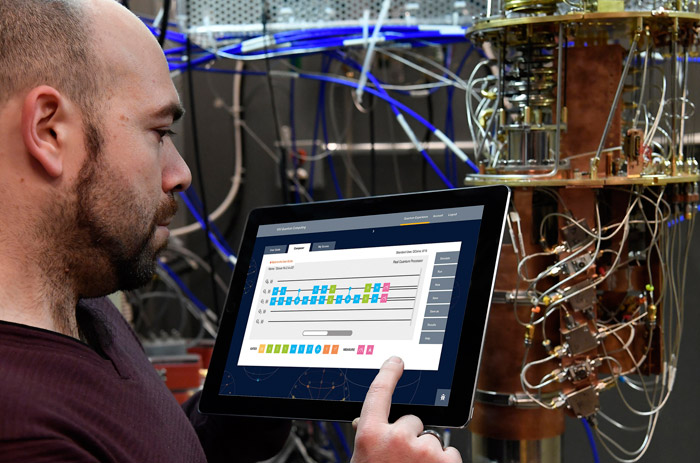Today IBM has made quantum computing available to the public for the very first time. The iconic computing firm has built a new quantum processor, made up of five superconducting quantum bits (qubits), and connected it to the cloud. This will enable researchers and scientists to run experiments on an IBM quantum processor, possibly addressing problems that are impossible or very time consuming to solve using today’s supercomputers.
The IBM Quantum Experience allows users to run algorithms, experiments and explore simulations. IBM says that its quantum processor is housed at the IBM T.J. Watson Research Centre in New York and this five-qubit powered platform is available, via the IBM Cloud, to any desktop or mobile device. This processor is the "latest advancement in IBM’s quantum architecture that can scale to larger quantum systems". Building upon this component IBM predicts it will be able to build a universal quantum computer with processors of 50-100 qubits.

A universal quantum computer will be able to be "programmed to perform any computing task and will be exponentially faster than classical computers for a number of important applications for science and business," asserts IBM.

IBM's five-qubit quantum processor
Heralding today's launch Arvind Krishna, senior vice president and director, IBM Research, said that "this moment represents the birth of quantum cloud computing". Krishna explained that quantum computers "will extend computation far beyond what is imaginable with today’s computers," and that the use of them will accelerate scientific discoveries and innovations.
The video embedded above shows those interested how its is possible to access and run test computations, such as Grover's Algorithm, on IBM's cloud connected quantum processor. If you wish to use the facility you will first have to request an invite to access the processing system but, for now, your usage will be free.













